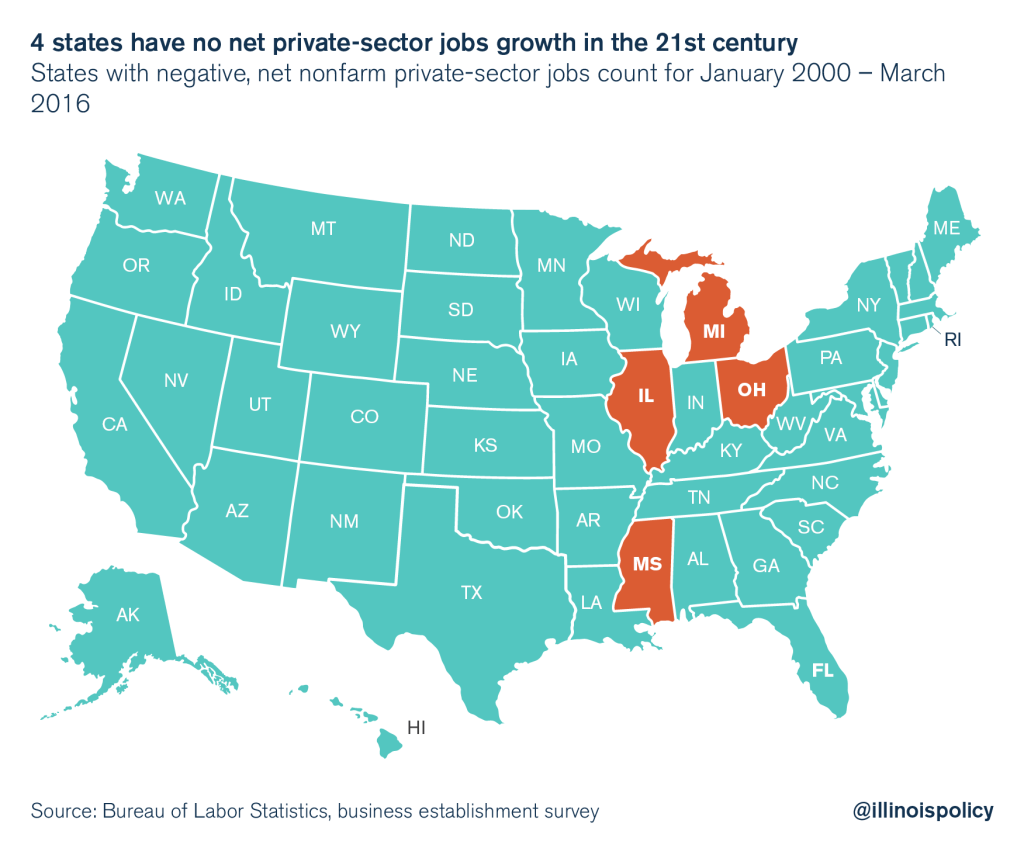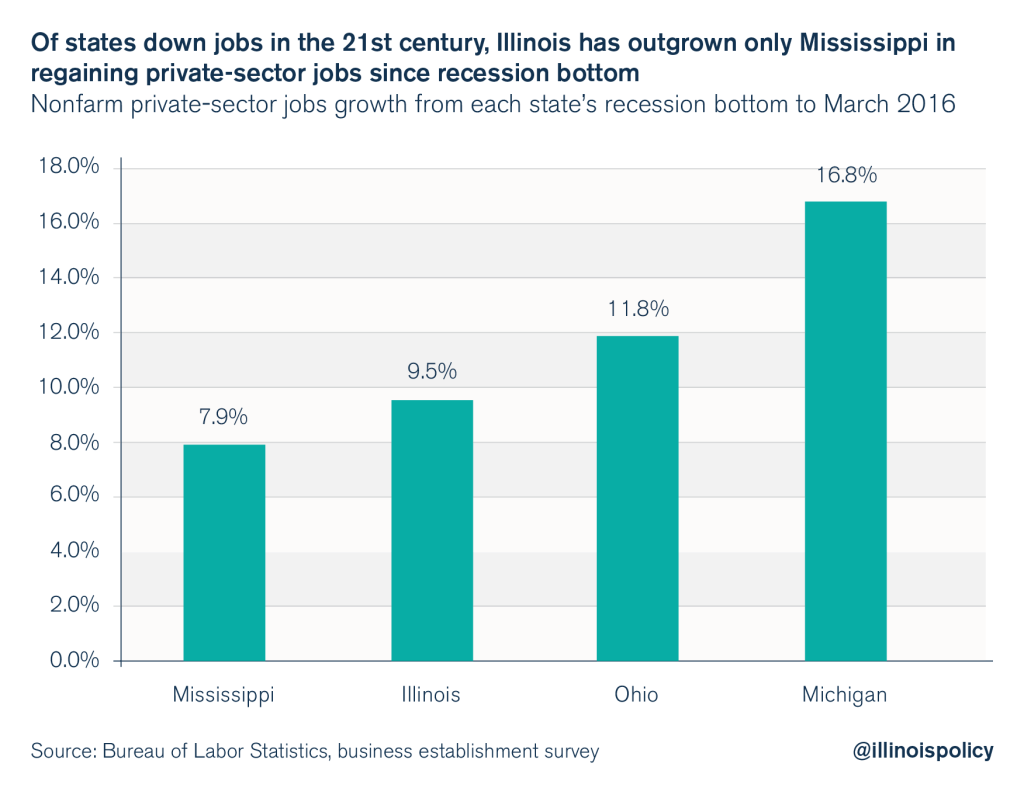Illinois has zero private-sector jobs growth in the 21st century
Illinois is one of four states in the entire U.S. to have fewer private sector jobs today compared to the turn of the century. The Land of Lincoln needs pro-growth reforms to allow the state’s private sector to rise again.
Illinois has not had a net gain in private-sector job opportunities in nearly 17 years. In January 2000, Illinois had 5,176,800 private-sector jobs. As of March 2016, the most recent month of Bureau of Labor Statistics data, Illinois had just 5,175,900 private-sector jobs.

This analysis doesn’t change much with government jobs factored in because overall government payrolls have barely budged over the same time period. Besides, the private sector creates the entirety of economic output and the lion’s share of employment opportunities, and the private sector is in need of relief from taxes, red tape and other government-imposed roadblocks in Illinois.
Hundreds of thousands of Illinoisans have been left idle as economic opportunity has bypassed the state, and hundreds of thousands more have headed to states that are richer in opportunity. Dozens of other states with less red tape, lower taxes and more jobs growth have been gaining residents from Illinois.
Illinois’ labor market has cycled with national trends, but with greater job losses during recessions and weaker job gains during economic expansions. In other words, Illinois falls harder and faster than other states, and climbs back slower when it’s regaining jobs. Earlier in 2016, Illinois became the second-to-last state in the Midwest to break even on its jobs count for the recession era, and the fact that Illinois has finally recovered its jobs lost in the last recession could be an indicator that the next recession is on its way.
It is unacceptable for Illinois to have gained zero jobs during the first decade and a half of the 2000s. And it’s a dereliction of duty for lawmakers to have put such little effort into reforms that would create opportunities for Illinoisans. There are only three other states down in private-sector jobs in the 21st century: Michigan, Ohio and Mississippi.

And since each state’s bottom in the Great Recession, Michigan and Ohio, with the help of tax cuts, policy reforms and a federal bail-out of big auto companies, have outperformed Illinois for jobs growth, while Illinois has outpaced only Mississippi in regaining jobs since the recession ended.
With or without federal help, Ohio and Michigan are on their way to rebuilding their industrial sectors through economic rebalancing and policy reforms. Illinois would do well to follow the path of reform, and to lift the long-term debt hanging over taxpayers and threatening to squash any economic growth.
The major problem in Springfield is the lack of a robust, bipartisan discussion of reform to allow Illinois’ private sector to rise again. Such a discussion, along with a legislative agenda geared toward jobs growth, is long overdue.
After months of political wrangling, Illinois’ political leaders should finally focus on Illinois residents’ most pressing economic need: more job opportunities. The urgency of reform on this front cannot be overstated in light of the sad fact that Illinois has zero net private-sector jobs growth 16 years into the 21st century.
